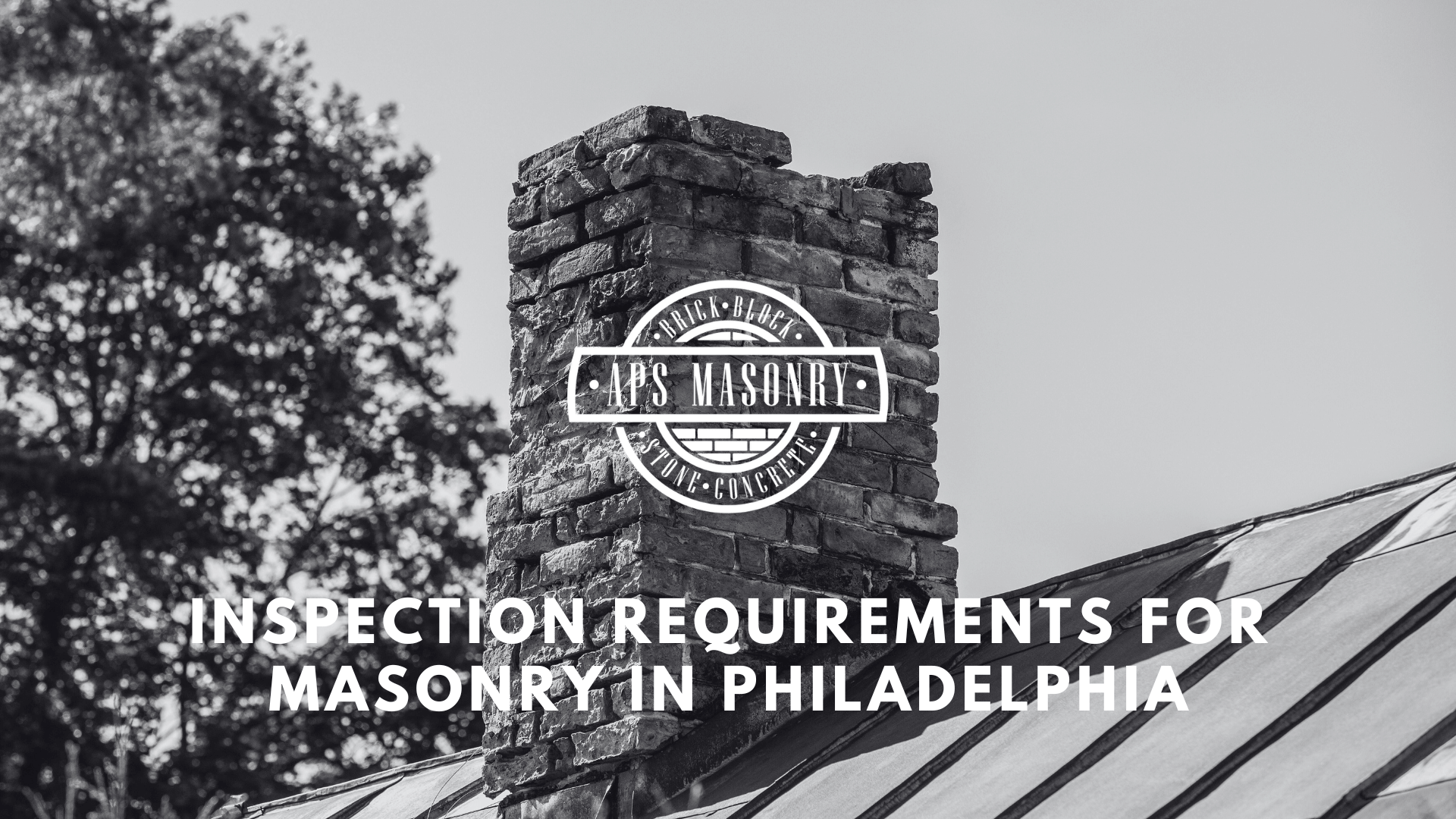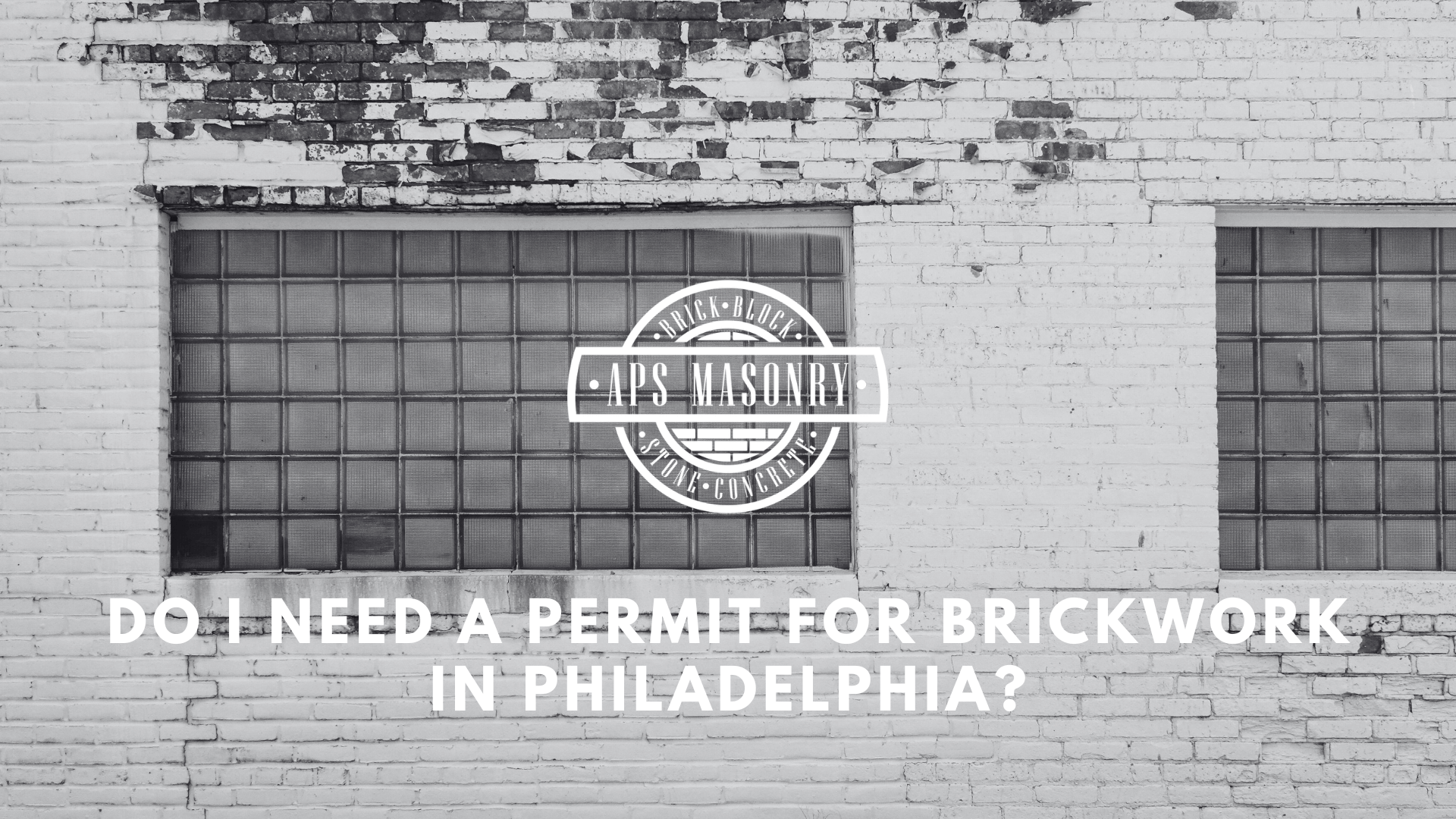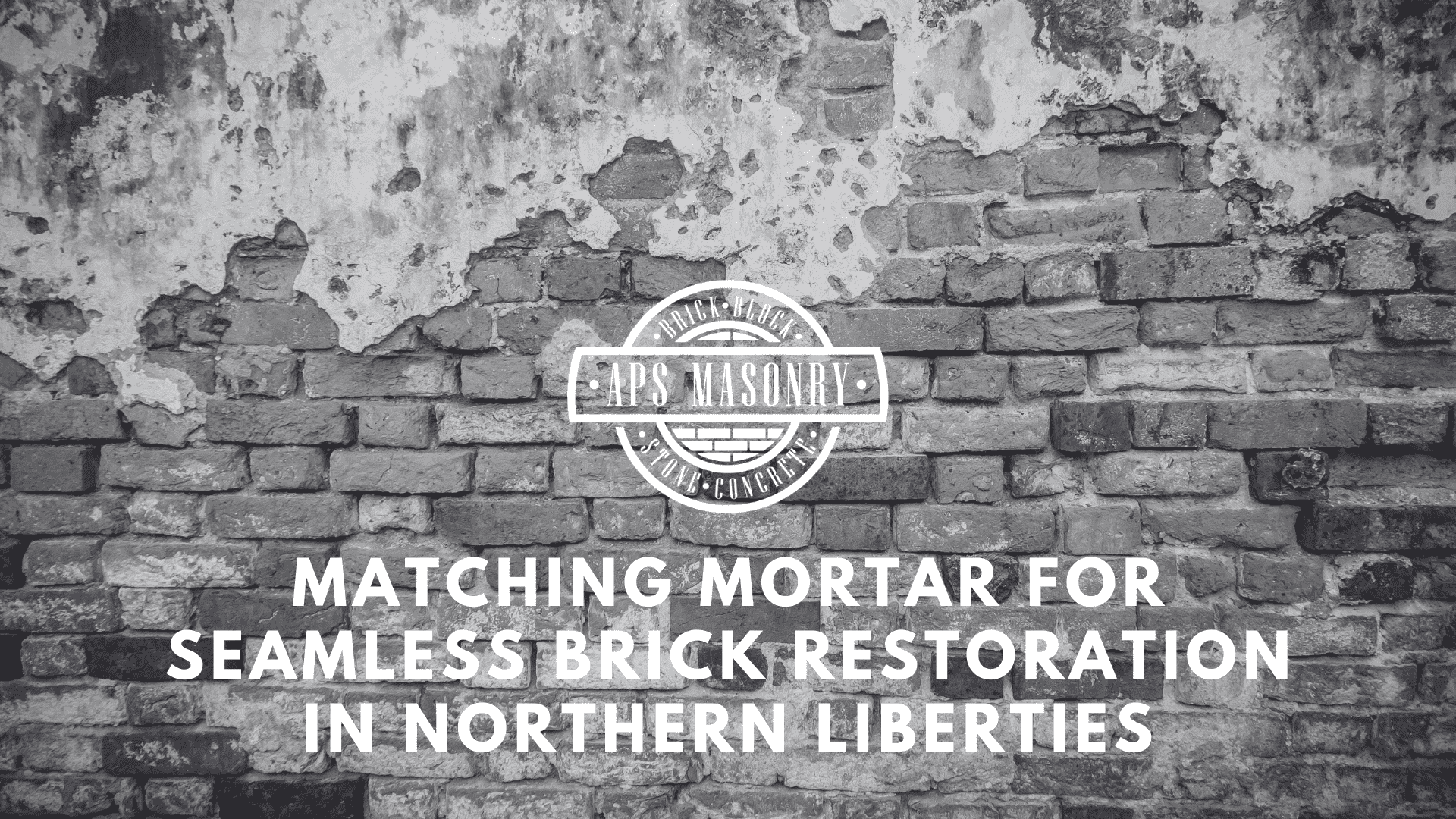Do I Need a Permit for Brickwork in Philadelphia?
Avoid fines, delays, and red tape—APS Masonry Contracting handles your Philadelphia brickwork permits so you don’t have to.

Getting masonry work done in Philadelphia isn’t as simple as hiring a contractor and breaking ground. If you're building steps, repairing a facade, or installing a retaining wall, you may need city approval first.
Failing to get a permit can result in costly fines, stop-work orders, or even forced demolition. At APS Masonry Contracting, we help Philadelphia homeowners avoid those headaches by handling permits the right way—before the first brick is laid.
In Philadelphia, masonry projects often require permits for safety and compliance with city regulations. The Department of Licenses and Inspections (L&I) mandates permits for various types of construction and repair work. Here's what you need to know:
Permit Required: If the wall is 2 feet or taller, supports a surcharge (like a slope or structure), or contains flammable/combustible liquids.
EZ Permit Option: For walls up to 4 feet that meet specific construction standards, an EZ permit (which doesn't require plans) may be available.
Permit Required: For replacing or altering masonry facades, especially if the building is over 3 stories or 35 feet in height, or if the work involves structural changes.
EZ Permit Option: For one-family dwellings up to 3 stories, non-load-bearing wall replacements may qualify for an EZ.
Permit Required: If constructing new patios or steps that alter the building's footprint or affect
Zoning Permit: May be needed if the construction changes the use of land or affects property boundaries.
Zoning Permits: Required for changes that affect land use, building size, or occupancy.
Historic Properties: Additional approvals may be necessary for properties listed on the Philadelphia Register of Historic
Contractor Requirements: Work must be performed by a licensed Philadelphia contractor, except for certain projects on existing one-or-two-family homes.
Dealing with Philadelphia's permitting process is complex for sure. APS Masonry Contracting is experienced in handling all aspects of permit applications, making sure your project complies with local codes and regulations.
If you are insistent on following through with your masonry project then here is what to expect. grab a pen and paper as there is plenty to write down!
When applying for a building permit, ensure you have the following:
Completed Permit Application: Detailing the scope of work and current owner information.
Proof of Ownership: If the property was recently sold, include a copy of the settlement sheet or deed.
Contractor Information: If a contractor is involved, provide their active license details.
Plans and Specifications: Depending on the project, you may need to submit detailed plans.
Additional Approvals: For properties in historic districts or floodplains, additional approvals may be required.
EZ Permits: Typically processed within 5 business days.
Standard Permits: Processing times vary:
15 business days for one- and two-family residential projects.
20 business days for all other applications.
Accelerated Review: Available for an additional fee, reducing review time to 5 business days.
Filing Fees:
$25 for single and two-family dwellings.
$100 for all other projects.
Permit Fees:
For alterations and repairs:
$76 for the first 500 sq. ft.
$56 for each additional 100 sq. ft.
Alternatively, 2% of the total construction cost, with a minimum fee of $253.
Surcharges:
$3 city surcharge per permit.
$4.50 state surcharge per permit.
Online (eCLIPSE System):
Apply through the eCLIPSE portal.
Upload required documents and pay fees online.
Track application status and receive updates.
In-Person:
Visit the Permit and License Center at:
1401 John F. Kennedy Blvd., MSB, Public Service Concourse, Philadelphia, PA 19102
Office hours: 8 a.m. to 3:30 p.m., Monday through Friday.
Appointments are recommended.
If you're unsure whether your masonry project requires a permit, the City of Philadelphia provides several online resources to help you make an informed decision:
Philadelphia L&I Permit Website
The main portal for all residential and commercial building, zoning, plumbing, and electrical permit information.
Get a Building Permit
Step-by-step guide to determine if your work requires a permit, what documents are needed, and how to apply.
L&I Resource Center
Downloadable forms, fee schedules, checklists, and guides to help you understand permit requirements.
Not all masonry work triggers a permit requirement. For Philadelphia homeowners, certain small-scale or non-structural projects fall under what's called “ordinary repairs” or maintenance work, which can usually be performed without city approval. Still, it’s crucial to confirm with L&I before starting—because if you guess wrong, the penalties can be costly.
Tuckpointing or Repointing Brick
As long as it doesn’t alter the wall’s structure or load-bearing capacity.
Replacing Individual Bricks or Stones
When done for cosmetic purposes and not part of a larger structural issue.
Small Paver Patios (Detached from Structure)
Provided there's no foundation disturbance or connection to the home’s drainage system.
Repairing Masonry Joints
Re-caulking or sealing joints in stone, block, or brickwork.
Patch Repairs to Cracks
If the cracks are minor, don’t extend through load-bearing components, and don’t affect an exterior wall structurally.
Replacing Walkway Stones or Pavers
When the surface area is small and the walkway isn’t connected to an entrance or deck.
Masonry Cleaning, Sealing, or Waterproofing
Surface treatments that don’t alter the material or involve invasive work.
Even if your project seems minor:
If the property is part of a historic district, additional reviews may still apply.
If the repair affects energy code compliance, structural beams, or service systems like plumbing or electrical, it could escalate into a permit-triggering job.
Earth disturbance—even for small patios or planters—could require a zoning permit if drainage patterns are affected.
For first-time applicants, Philadelphia’s permit process is full of traps that can turn a straightforward masonry project into a drawn-out, costly mess. Submitting the wrong form, omitting your contractor’s license number, or failing to include proper drawings can delay your review by 2–3 weeks minimum—and that delay doesn’t start until the application is marked “Accepted for Review.”
If your project is misclassified (for example, applying for an EZ permit when a full building permit is needed), expect to restart the process entirely. That can mean resubmitting documents, repaying fees, and pushing your start date back by up to 6 weeks. Worse, if you've already begun work, you risk fines of $150–$300 per violation per day and a stop-work order that shuts everything down.
Even approved permits can hit snags. Missed zoning or historic district approvals can trigger additional plan reviews, costing $300–$1,000 in design revisions and another 3–6 weeks of delay. Hiring an unlicensed contractor? That’s an automatic denial. If work is underway, you could be forced to pause construction, remove completed portions, and hire a licensed team to start over—adding 20–30% to your total project budget.
Failed inspections are another money sink. If your contractor doesn’t meet L&I’s foundation or water runoff standards, you’ll pay for rework labor, possibly incur storage fees if materials can’t be installed on time, and scramble to reschedule other trades like electricians or landscapers—putting your renovation calendar into a domino-style collapse. For projects on a tight budget or schedule, these errors are financially devastating.
At APS Masonry Contracting, we’ve seen firsthand how permit missteps derail timelines, blow budgets, and create legal headaches. That’s why we handle every aspect of the process—from initial zoning checks to full permit application, plan submission, and inspections. Our team works directly with Philadelphia’s Department of Licenses & Inspections (L&I), so we know exactly what’s needed, how to avoid red tape, and how to keep your project moving without costly surprises.
Whether you’re rebuilding steps, adding a retaining wall, or repairing masonry on a historic property, we make sure the job gets done right—and legally. No guesswork. No delays. No fines. Just expert craftsmanship, done to code. If you're ready to move forward with masonry work and want a partner who handles the paperwork as well as the bricks, call APS Masonry Contracting today. We'll guide your project from plans to permits to completion, on schedule and stress-free.

Avoid fines, delays, and red tape—APS Masonry Contracting handles your Philadelphia brickwork permits so you don’t have to.

For most Philadelphia building owners, masonry inspections feel like just another line item—another fee, another delay, another department asking for...

Seamless brick restoration Northern Liberties needs a masonry contractor with skill. Our team restores mortar joints and masonry work across...